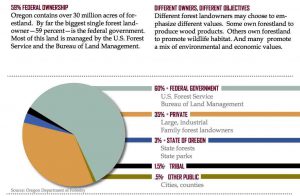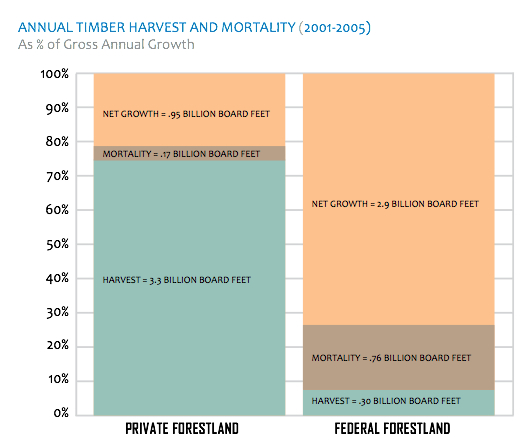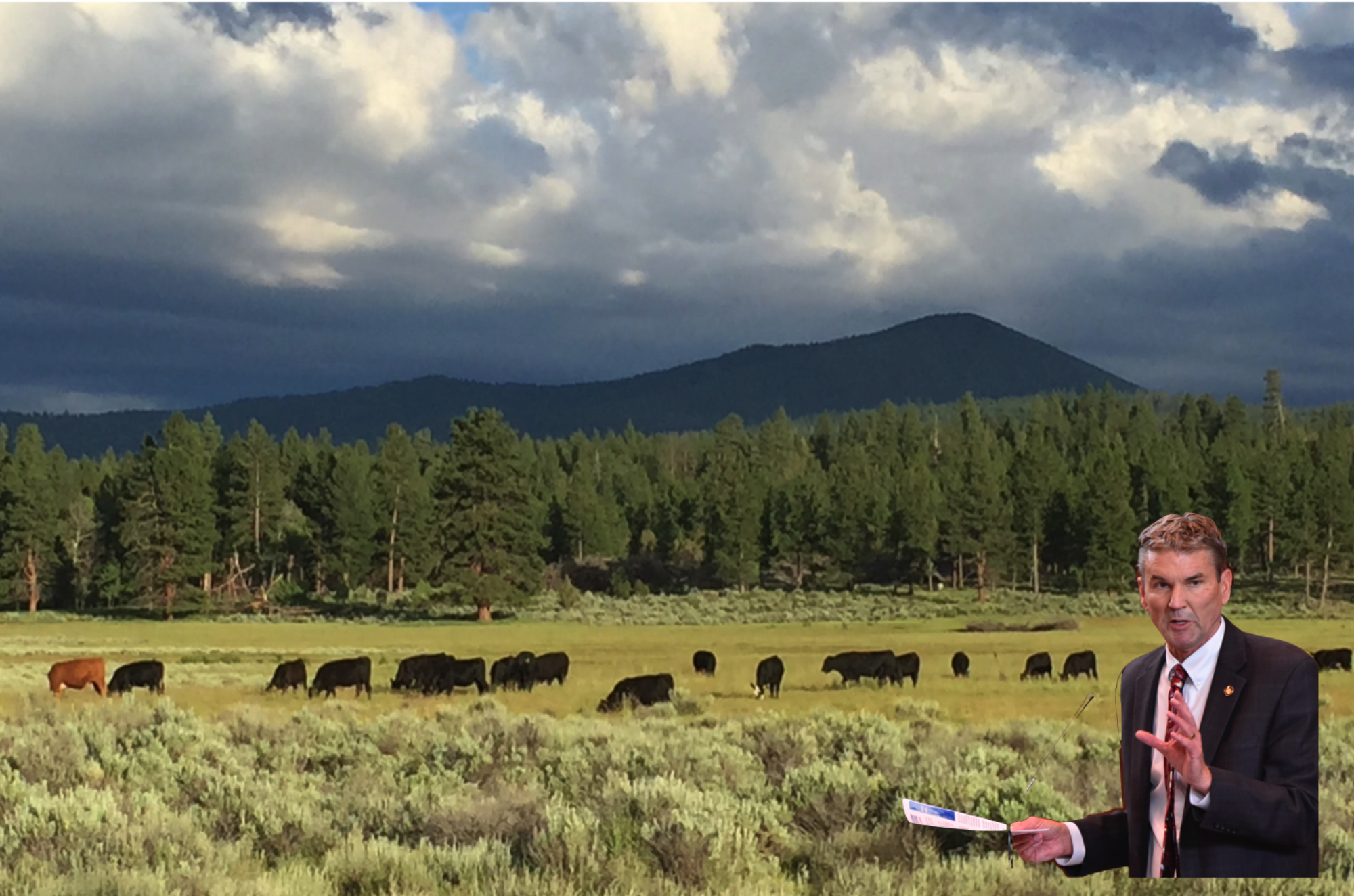Professionals in our timber industries are the best-equipped stewards of our forests. However, in Oregon, more than 50% of the state is owned by the Federal government, so this means that private industry, state and local governments have ultimately no control over most of Oregon’s resource-rich landscapes. As a county commissioner I regularly see the tragic results from ill-conceived federal policies and the high costs of unintended consequences.
In Klamath County, and throughout the 2nd District, we find ourselves begging for favors from the Federal government instead of being allowed to create jobs, build communities and see prosperity flourish at the local level. The political establishment prefers rewarding national or regional special interest groups rather than local communities because that creates a culture of power, money and control for themselves. Federal control and regulation diminishes the effectiveness of those most likely to steward natural resources well (loggers, miners, ranchers, etc.).

A classic example of this troubling trend is the recent Restoring Healthy Forests for Healthy Communities Act (HR 1526). Instead of giving O&C counties and private enterprise responsibility for forestry lands (that are already designated “to provide for economic stability of local communities and industries”) this bill gives 50% of that land to special interest groups who have neither earned nor shown stewardship of it.
These groups, often environmentalists from San Francisco or New York, are usually headquartered in Washington, D.C. Ever wonder why these groups voice concern for Oregon’s communities and habitat while residing in the capitol?

These environmental special interests have political power in Washington, which allows their media moguls to raise the massive capital needed to control industries throughout the West. This concentrated power decimates our local communities. In Oregon’s 2nd District, whole towns and counties are withering financially. They don’t have access to their land’s natural resources, like timber, and the result is lost infrastructure and jobs that these communities desperately need.
The political establishment’s policy essentially denies these communities the freedom to pursue private enterprise and support themselves. This is not how our representative government is supposed to work.
Bills like HR 1526 eventually hurt those they’re trying to help, even though they are lauded by the media and the political class as wonderful bipartisan efforts. Congressmen Walden, DeFazio and Schrader’s bill is troublesome because Congress looks good while not substantially helping the region. The rural communities affected by this O&C bill accept these negotiations because they know the Feds dominate the conversation and they feel they don’t have a choice.
 As your Congressional Representative, I’ll take a different stand. Although a cup of tepid soup might help a starving soul, our Federal legislators shouldn’t be working the ladle, nor forcing us to accept such bare-bones deals. Instead, they should allow us freedom to prosper, by opening markets and creating opportunities for success in the local economy, not in the halls of Washington.
As your Congressional Representative, I’ll take a different stand. Although a cup of tepid soup might help a starving soul, our Federal legislators shouldn’t be working the ladle, nor forcing us to accept such bare-bones deals. Instead, they should allow us freedom to prosper, by opening markets and creating opportunities for success in the local economy, not in the halls of Washington.
Therefore, I’m going to stand up for Oregon’s entrepreneurs, foresters, harvesters, ranchers and miners. These are the vibrant businesses and families that have the tenacity to bring our communities back to life. I believe in these individuals more than I believe the professional politicians. I’ve lived and worked beside these ingenious, hardworking problem-solvers for years. Unlike Washington’s half-hearted politics, offering tepid hand-outs saddled with onerous controls, these Oregonians just need government to get out of the way and let them succeed.
Don’t mistake my optimism for naiveté – I know there are difficulties in any public policy. But unlike some in the permanent political class, I don’t think these problems are unsolvable. I think it’s the responsibility of our representatives to truly uphold the interests of the people and not force citizens to take bad deals which entail more laws, more regulation, less enterprise and less freedom.
It’s disingenuous to bully local governments into accepting sub-par deals that fund special interest environmental groups from out-of-state at the local communities’ expense. It’s tempting to take these political “deals” – as a commissioner, my support for HR 1526 arises out of sheer frustration; I have no other viable alternative, but I think we can do better.
It’s long-past time that we stood up for the men and women who exhibit the professionalism and knowledge needed to insure successful timber sales and harvests while protecting these beautiful forest resources.
For more on our natural resources, check out the links below:
- Endangered Species Act: On 40th anniversary, time to rethink how we protect wildlife
- Lawsuit Seeks Sustainable Timber Harvest on O&C Lands Companies ask Court to remedy federal agency inaction
- Enviornmentalists & Tribes Team Together, Again
- Government Fiddles, Our Nation’s Forests Burn
- Fox News Video: A June GAO report found that the Obama Administration blew $500 million on green jobs training for jobs that don’t exist.
- Video: Energy Makes America Great
- Here Comes Another Sham …

 Last week, in a letter to the Herald & News editors, someone commented that:
Last week, in a letter to the Herald & News editors, someone commented that: